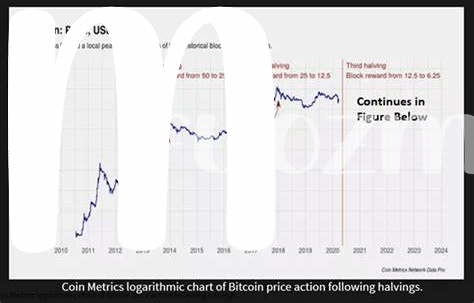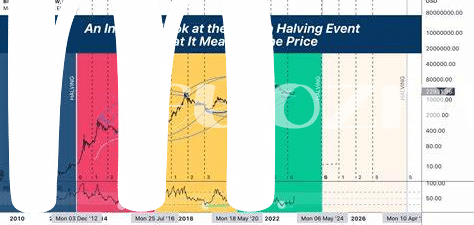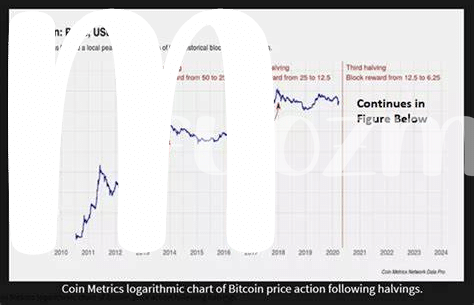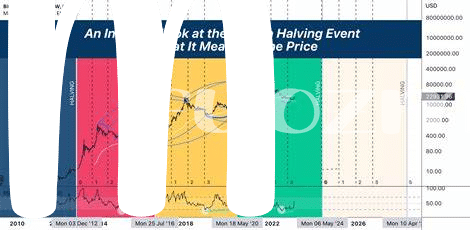Bitcoin Basics: Digital Gold or Internet Money? 💰

Imagine finding a kind of money that’s like gold but lives on the internet. That’s a simple way to think of Bitcoin. Unlike the money in your wallet or bank, Bitcoin isn’t controlled by any single country or bank. It’s like digital gold because there’s only a certain amount of it in the digital world, making it rare and valuable. People buy it hoping its value will go up, similar to how others invest in gold. But here’s the twist: you can also use it to buy things online and, increasingly, in the real world, which is why some call it internet money.
| What is Bitcoin? | Why Do People Like It? |
|---|---|
| A digital form of currency | It’s not controlled by governments or banks |
| Has a limited amount, like gold | Can be a valuable investment |
| Can be used to buy things | Offers a degree of privacy in transactions |
The magic of Bitcoin lies in the combination of its rarity and usability. On one side, enthusiasts see it as a long-term investment, storing their wealth in the hopes it will grow. On the other, some are beginning to use it in their daily lives, treating it like any other currency to make purchases. This duality is what fuels the debate: is Bitcoin the digital equivalent of gold, or the future of internet money? 🌐💸
Rising Stars: How Other Cryptocurrencies Support Bitcoin 🌟
Imagine Bitcoin as the leading actor in a big movie, but instead of acting alone, it shares the stage with a talented supporting cast that helps it shine even brighter. Other cryptocurrencies, often called altcoins, work together much like a team, each bringing its own unique strengths to the table. When a new altcoin introduces a groundbreaking feature or gains popularity, it not only draws more attention to the crypto world but also reinforces the idea that digital currencies are here to stay. This, in turn, lifts the entire market, including Bitcoin. For example, when Ethereum came along with its smart contract capabilities, it opened up a whole new realm of possibilities, getting more people excited about what cryptocurrencies could do, which added to Bitcoin’s appeal as the original crypto. Plus, as these altcoins grow and become more stable, they often increase the demand for Bitcoin since Bitcoin is commonly used as a gateway to invest in other cryptocurrencies. This interconnected growth and support create a positive feedback loop, pushing the value and acceptance of Bitcoin even higher. It’s like watching a team win a championship—the victory is sweet not just for the star player but for the entire team and their supporters. For a deeper dive into how global economic trends influence Bitcoin and its ecosystem, check out this insightful analysis https://wikicrypto.news/exploring-decentralized-storage-solutions-for-bitcoin-safety.
Public Buzz and Big Names Jumping in 📣

Bitcoin and its digital comrades have been whispering in the ear of the public sphere for a while, but when celebrities and business moguls shout from the social media rooftops, the whisper turns into a roar. Imagine, giants of innovation and entertainment, from tech tycoons to pop stars, shining a spotlight on Bitcoin, tweeting their support, and even investing big bucks. This isn’t just talk; it’s a wave of action that sends ripples across the globe, enticing more people to join the party. As these influential figures put their weight behind digital currencies, their fanbases and followers take notice, sparking interest and sparking discussion around dinner tables and in office break rooms alike. The result? A growing acceptance and curiosity among the masses, eager to be part of the crypto movement, further fueling Bitcoin’s journey to the moon. 🚀✨🌍
From Online Wallets to Coffee Shops: Using Bitcoin 💳

Imagine walking into a coffee shop, where instead of handing over crumpled bills or tapping a plastic card, you scan a code with your phone to pay with Bitcoin. This isn’t a scene from a futuristic movie anymore but becoming our reality. The journey of Bitcoin from the realm of online wallets, where it was mainly a speculative tool or a digital treasure chest, has now paved its way into our everyday lives. You can now use it to grab your morning coffee, buy a book, or even pay for a haircut in some places. This shift is more than just convenience; it’s a sign that Bitcoin is weaving itself into the fabric of daily transactions, making the digital currency more relatable and accessible to the average person.
You might wonder, with all these changes, how do Bitcoin prices keep up? For those curious about the economic side of things, understanding why do bitcoin prices fluctuate in 2024 is crucial. It’s a dance of supply and demand, public interest, and a sprinkle of market sentiment. As Bitcoin continues to step out of the shadows and into the spotlight, each coffee bought or movie ticket purchased nudges its value and public perception a little more. 📈☕ This real-world usage does not just add a layer of practicality to Bitcoin; it acts as a constant booster, reminding us of its growing role in our daily exchanges and, potentially, its staying power in the financial world. 🌐💼
Government Responses: Bans, Taxes, and Legal Recognition 🏛️
When it comes to the world of digital money, governments around the globe are sitting up and taking notice. They’re rolling out the red carpet with laws that say, “Yes, we recognize you,” turning Bitcoin from the outcast at the finance party to the guest of honor. But it’s not all confetti and cheers. In some corners, Bitcoin is met with furrowed brows, leading to outright bans 🚫 or tight leashes in the form of taxes. It’s like a seesaw: on one side, you have countries embracing the future, offering Bitcoin a seat at the table with legal recognition, and on the other, skepticism leads to restrictions. This delicate dance between acceptance and caution paints a vivid picture of a financial revolution in progress, showing us that the journey toward mainstream Bitcoin usage is as thrilling as it is unpredictable. Below is a snapshot of how countries are tipping the scales:
| Country | Response to Bitcoin |
|---|---|
| Japan | Legal recognition, friendly regulations 🌐 |
| USA | Taxable asset, increasing acceptance 📈 |
| China | Bans on transactions, skeptical stance ❌ |
| Germany | Legal, treated as private money 💶 |
Future Predictions: Moon Landing or Bubble Burst? 🔮

Peering into the crystal ball to foresee Bitcoin’s journey, we find ourselves at a crossroads of possibilities. On one side, enthusiasts see a rocket ship poised to take us to the moon, arguing that as more folks learn about Bitcoin and start using it, its value could soar even higher. They picture a world where Bitcoin isn’t just a fad, but a fundamental part of our financial system, embraced by all. On the flip side, skeptics are cautioning about a bubble ready to pop. They remind us that value that shoots up too fast can come down just as quickly, warning that not everything that glitters is digital gold. Amidst these debates, it’s clear that knowledge and safety in handling Bitcoin are paramount. For those new to this digital frontier, understanding how to keep your digital coins safe is a cornerstone. A useful guide can be found here who created bitcoin for beginners, offering a treasure map to navigate the complexities of cryptocurrencies. As we stand on the brink of the future, whether Bitcoin will take us to the stars or down the rollercoaster of value remains a question only time can answer. 🚀🔍💡
